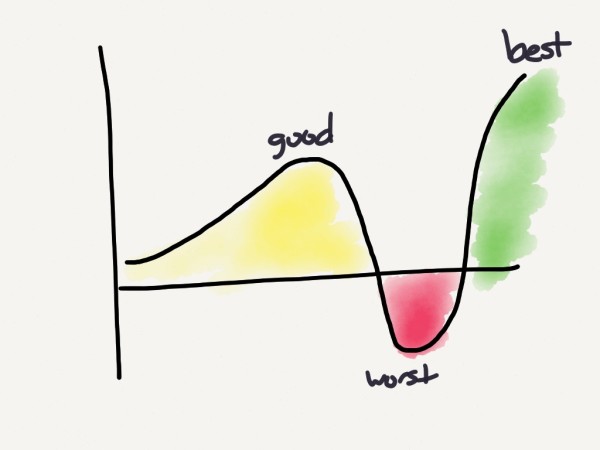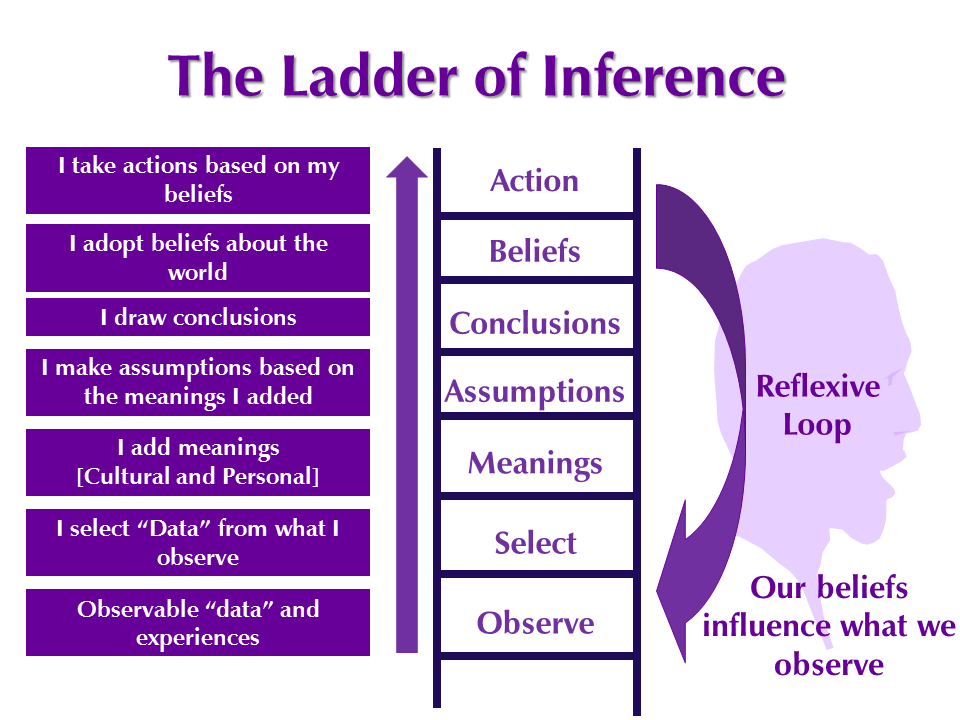These notes are based on Jeffery Fredrick’s talk on “#LearningIsHorrible, and Other Harsh Realities” done at QCon in April 2016
Do you like to be wrong? How does that make you feel?
Whenever you learn something new, it replaces your previous view - that means that up to the point you learn’t the thing, you were wrong.
The Uncanny Valley of a Functional Organization
The uncanny valley is a hypothesis in the field of human aesthetics which holds that when human features look and move almost, but not perfectly, like natural human beings, it causes a response of revulsion among human observers. The concept can be extended to other areas as well…

Anything that is almost perfect, but not quite, is actually worse than something that is good enough
Read more about uncanny valley of a functional organization
Ladder of Inference
You are making a proposal in meeting and the main stakeholder you are trying to convince glances down and checks their watch. What do you think?
- he’s bored
- he’s not interested
- he needs to be in another meeting
To get to that thought you have progressed through the ladder of inference.

Read more about ladder of inference
- I see the world as it is; those who disagree don’t
- I am right; those who disagree are wrong
- I have pure motives; those who disagree have questionable motives
- My feelings and behavior are justified
- I am not contributing to the problem
Eight behaviors for smarter teams
- State views and ask genuine questions
- Share all relevant information
- Use specific examples and agree on what important words mean
- Explain reasoning and intent
- Focus on interests, not postitions
- Test assumptions and inferences
- Jointly design next steps
- Discuss undiscussable issues
Read more about eight behaviors
Espoused Theory vs Theory in Use
Do people value good decisions or do they value having their own way?
Most people would say they value good decisions. What do you observe most people doing?
The problem isn’t what we espouse, the problem is our theory in use.
View video on Espoused Theory vs Theory in Use
Deliberate Practice
The way a piano works is you press a key, this triggers a hammer which in return hits the appropriate string. Are you now able to make music?
Knowing how a piano works and playing music are two different things!
Knowing how something works and being able to work it are two different things.
It takes deliberate practice to get something right. To collaborate you need deliberate practice in collaborating.
Emotional Agility
What does agility mean? Agility is the ability to choose something that is appropriate for the context.
- Recognize your patterns
- Label your thoughts and emotions
- Accept them
- Act on your values
If you really value collaboration, you need to put the work in to asking questions, listening and caring about the responses.

